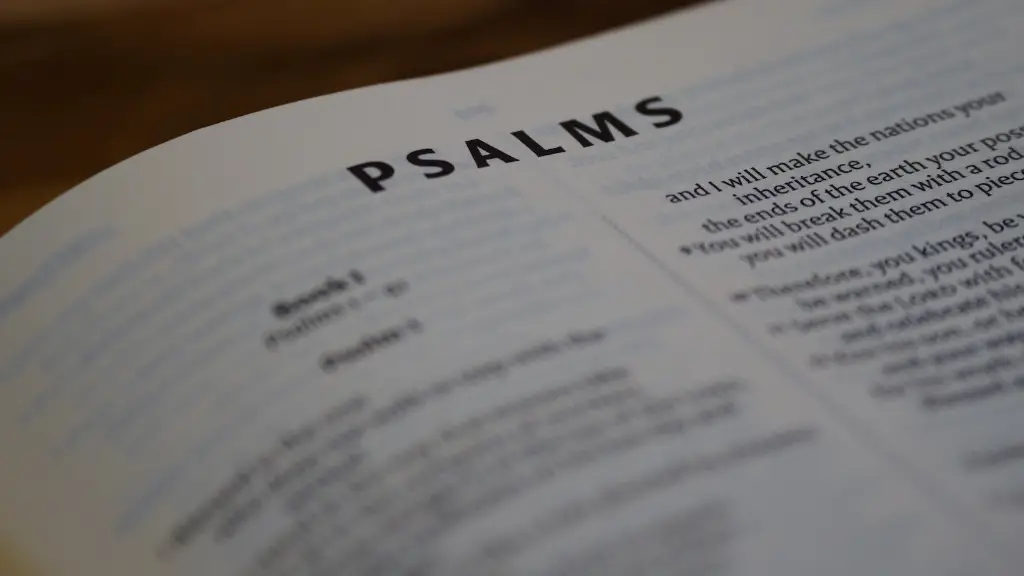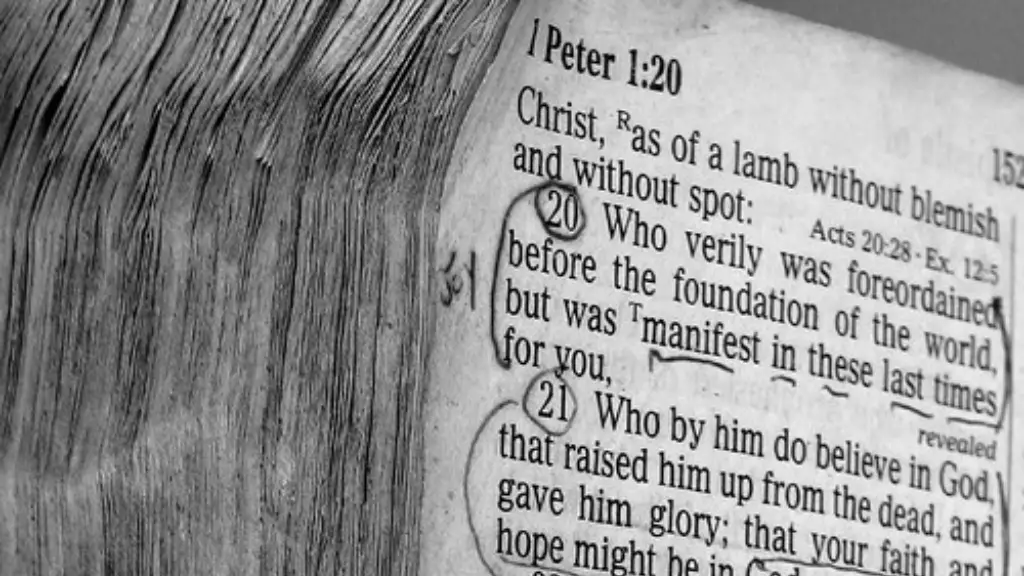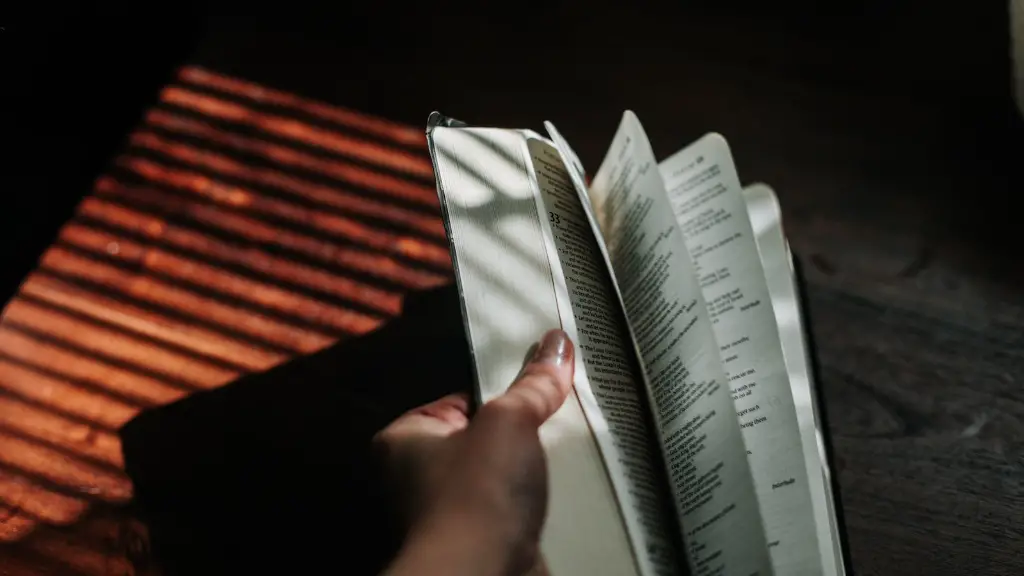Have you ever experienced a broken heart? It can be thoroughly debilitating and something that takes a long period of time to recover from. It is common to FEEL like “God has forsaken us” and “will never love us” when we are dealing with a broken heart. For some this can feel like a physical pain, something similar to a “cold, dark emptiness”. But what does the Bible actually say about a broken heart – and can it really offer any hope?
Christians believe that God is omniscient and all-loving, so this would suggest He is aware of, and can relate to how we feel when our heart is broken. In Psalm 34:18 we’re told that “The Lord is near unto them that are of a broken heart; and saveth such as be of a contrite spirit”. This understanding is echoed in Psalm 147:3 which says that God “healeth the broken in heart, and bindeth up their wounds”.
The message that’s coming through here is that God is merciful: that He is not wrathful or punishing when it comes to a broken heart. Instead, He is compassionate and understanding. Rather than trying to heal us by magic, He offers us solace, reminding us that He’s close and that He will save us from the depths of despair.
It is comforting to know that, when we are feeling broken-hearted, we can draw comfort from God’s promises – that “your sorrow will be turned into joy” (John 16:20). In other words, it’s about being open to the idea that God may bring something better or more fulfilling out of this difficult situation, something that we never could have predicted or anticipated.
It’s not necessarily easy to find comfort when you’re dealing with a broken heart. All too often, it can feel like a painful, lonely experience – something that we struggle to talk about or to make sense of. But the Bible can be our greatest ally, helping us to reconnect with God’s love and to experience inner peace and healing once again.
And so, whilst we can’t deny that a broken heart can be painful and overwhelming, it is also important to remember that God knows what it’s like. He cares deeply, and He is here to bring hope and healing – especially when we’re feeling at our lowest ebb.
Restoring Faith
One of the primary things that a broken heart can do is it can leave one the feeling completely alone and bereft of faith. It can feel like all the hope of the world has been squeezed out of us and we are left with an emotional “black hole” that is impossible to fill.
The Bible speaks a lot about “faith” as a reflection of our relationship with God. It recognizes faith as being “the substance of things hoped for, the evidence of things not seen” (Hebrews 11:1). In other words, faith is the belief in something that cannot be seen, touched or proven.
When our hearts are broken, it is only natural that faith may abandon us. What do we hope in when nothing makes sense anymore? What is the evidence of things not yet seen? In order to restore faith, we must make space for God in our lives again and realize that He is here for us when we are in need.
God speaks of faith throughout the Bible, including in 2 Corinthians 5:7 which states “for we walk by faith, not by sight”. In other words, when our faith is restored then we can start to see the world differently, despite the world making no sense to us. This can be a painful process but it is also incredibly liberating.
Reconnecting with God and restoring faith can help to fill the “black hole” of anguish and we can start to move forward with the help and guidance of God’s grace.
The Power of Prayer
Prayer has always been an important tool in the Bible and it can help us to reconnect with our broken heart in a way that no other method can.
When we are experiencing a broken heart it can be hard to think straight, never mind find the words to articulate our sorrows.This is where prayer can help, reminding us that God hears us and is understanding of our struggles.
In a time of desperation, prayer can be a gentle reminder of God’s presence and an opportunity to lay our pain and grief out before Him.
The Bible is full of stories of people who prayed and experienced a response from God. In Jeremiah 33:3, for example, God tells Jeremiah “Call unto me, and I will answer you”. This is a reminder that God is here for us, and that He is prepared to act on our behalf.
This doesn’t mean that God will make all our problems go away overnight. But it does mean that He will listen to us and provide us with the strength and support we need to continue on in hope and faith.
Finding Acceptance
When a broken heart needs healing, one of the most important steps is to learn to accept your current situation. Acceptance does not mean simply “giving up” or resigning yourself to the fact that things won’t get any better. Instead, it is about learning to accept, recognize and understand our current feelings, and to make peace with them.
The Bible speaks a lot about acceptance and understanding. One of the best-known passages, from Romans 12:14-16, talks about “mourning with those who mourn”, and “falling into harmony with everyone”. In other words, acceptance means understanding that our individual pain and struggle can be shared by others and that it is ok to lean on each other for support and strength.
Acceptance involves coming to terms with the fact that life isn’t always fair. It means understanding that the feelings of despair, loss and hurt are all valid, and that it is important to take time to process and move through them.
Facing up to these hard truths and accepting our current situation is hard. But it is an important part of life, and an essential part of the healing process when it comes to dealing with a broken heart.
The Obligation of Choice
When we are dealing with a broken heart, it can be all too easy to imagine that the only two choices we have are despair or the status quo. But the Bible offers us a third option: the obligation of choice.
Throughout the Bible, we are reminded that we are responsible for our own actions and that, ultimately, our own choices will determine whether we succeed or fail. In James 4:17, we read “For he [God] giveth more grace. Therefore it saith, God resisteth the proud, but giveth grace unto the humble”. In other words, humility is a virtue; and when we have the humility to humbly accept the predicament we find ourselves in, God will come to our rescue.
Our own choices are key – whether that’s choosing to move through the pain, focus on the good things, or even seeking professional help. As the Bible reminds us, God is here for us – but only if we make the choice to accept His help and guidance.
Learning from Our Mistakes
A broken heart can cause a great deal of pain and suffering. But it can also be an opportunity to learn and grow in our own lives.
As the Bible reminds us, mistakes are a part of life and we must learn to accept and own our individual errors. In Proverbs 19:20 it reads “he that hath understanding will find had: he that seeketh out knowledge shall not err”. In other words, we must use our understanding and knowledge to move forwards, to learn from our mistakes and to strive for a better future.
This doesn’t mean that we have to accept all of our choices as wrong. Instead, it is a reminder that pain can be used as a catalyst for growth and change. When faced with a broken heart, we can choose to look for the strength and courage to move forward and to rebuild our lives for the better.
Starting Anew
Ultimately, when dealing with a broken heart, it is important to remember that healing is possible – and that we can start afresh. The Bible speaks of “a time to break down, and a time to build up” (Ecclesiastes 3:3). We should make use of our pain to rebuild our lives and to strive for something better.
As Ecclesiastes 11:10 proclaims, “Cast thy bread upon the waters: for thou shalt find it after many days”. In other words, whilst there may be no immediate resolution to our suffering, our efforts will still bear fruit – and in God’s time we will see that reward.
A broken heart can be a difficult thing to deal with. But the Bible teaches us that God is here for us, and that He is prepared to lend a hand when life feels at its most challenging. Through prayer, faith, acceptance and a renewed commitment to our own future, we can find hope in the midst of a broken heart and can eventually find restoration and peace.





